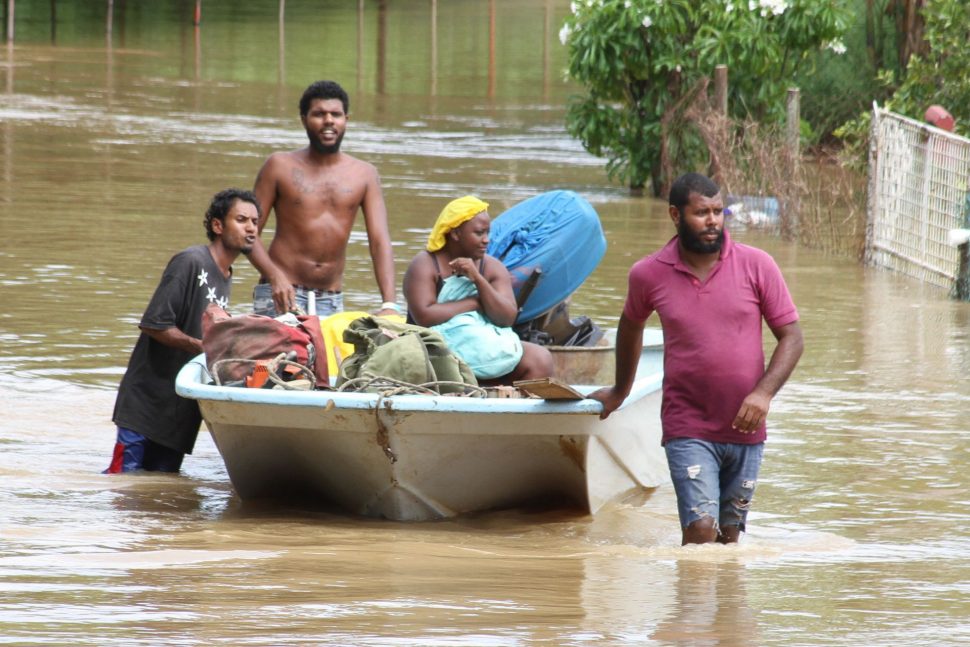(Trinidad Guardian) Residents affected by the devastating floods a month ago are struggling to rebuild their lives and mental health experts are appealing to the authorities to ensure there are mechanisms to provide emotional and psychological support.
Secretary of the Psychiatrists Association of T&T Dr Varma Deyalsingh said while replacement of physical assets is an integral part of the rebuilding process, Post-Traumatic Stress Disorder (PTSD) is a very real possibility for flood victims.
PTSD is a mental health condition that can develop in people after they experience or witness a life-threatening event such as combat, a natural disaster, car accident, or sexual assault. Symptoms include flashbacks, nightmares and severe anxiety, as well as uncontrollable thoughts about the event.
Deyalsingh said some people may have developed a tolerance for flooding over time, as it may be something they are accustomed to every time it rains, so the level of anticipation and expectation was normal.
However, the sudden and intense flooding would have struck everyone hard, surprising people and leaving them distressed.
“It would have affected people who felt trapped and felt as though they were going to drown and die,” he said.
Referring to accounts by persons who escaped by climbing onto their roofs, Deyalsingh added: “Obviously the stress will be there.”
He explained that this could lead to affected people also developing acute stress disorder, which is characterised by severe anxiety, dissociation and other symptoms that develop within a month after exposure to an extreme traumatic stressor.
“Affected persons may be unable to function as normal on a daily basis while battling feelings of fear, hopelessness and anxiety.
“It may lead to a level of dysfunction as they may not be able to go about their daily life and we need to at least be there for them, to give them that therapy,” he said.
That was the experience of Debbie Gobin* who said she felt lost and alone and became anxious and scared every time there was a storm cloud overhead.
A teacher, Gobin was unable to function normally when rain began falling days after the devastating floods.
“I feel stressed mentally and physically but I am moving along. I am not sitting and waiting, I am doing all I can to put myself in a stable frame of mind,” she said.
Gobin has lived in St Helena for 12 years and she recalled an incident about three days after heaving rains on October 19 when she found herself “sitting in work, worried that the water could come up again.”
She said: “We cannot go through another one like this. I even thought we should move out because it was crazy.”
Although she and her family are accustomed to minor floods every time it rains, Gobin said: “This time, it was much more than something we could have dealt with. We watched everything we built washed away in a few seconds.”
Her biggest worry now is her ailing mother-in-law who stays at home alone when Gobin and her husband go to work. The elderly woman suffered a seizure days after the floods.
“She couldn’t take it anymore and just collapsed,” Gobin said.
Deyalsingh recommends psychological first-aid for the thousands affected by the floods.
“We have to let them talk about their experience and what is going on,” he said.
He is also calling for a long-term plan in place to assist them and said there is an urgent need for the complement of social workers to be increased, as asking persons to return to homes that were flooded is re-traumatising.
“Such persons need help to adjust as they face the prospect of starting over. In some cases, retired people might be forced to re-enter the job market to earn money to outfit their homes.
El Carmen resident Melissa Ram* said she felt overwhelmed and unable to cope as her family scraped mud and slush from the walls of their home.
The 40-year-old mother of two said her four-year-old daughter was upset after her grandmother fell and seriously injured herself during the post-flood clean up.






